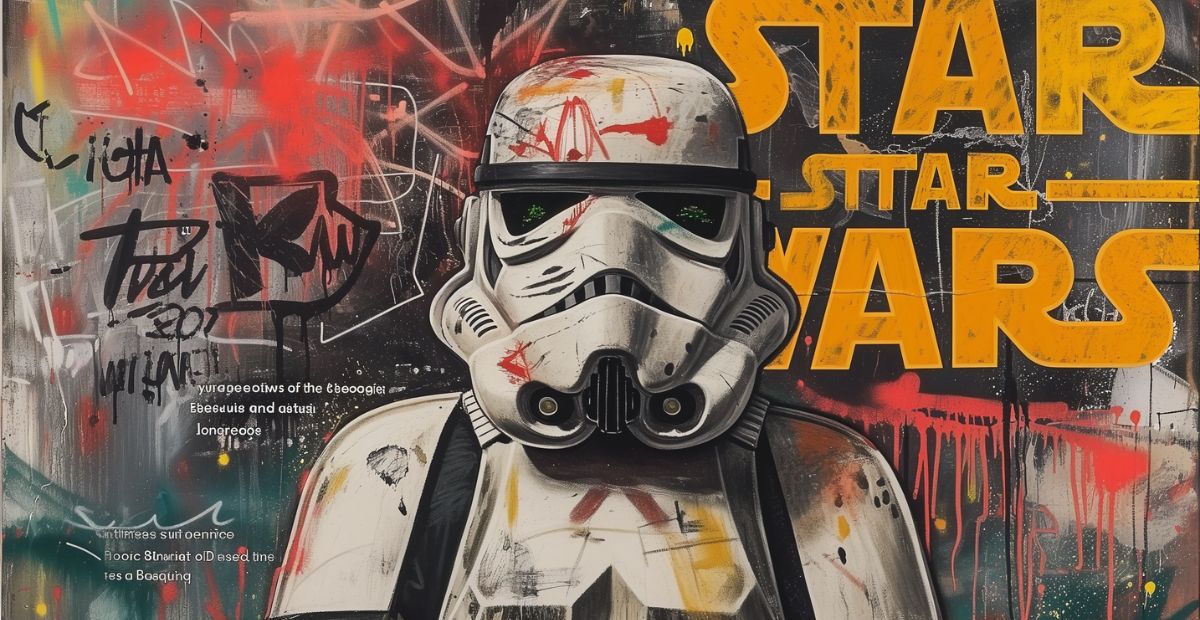In the Star Wars universe, the troopers’ identities extend beyond their armor. Clone Troopers are known for their unique nicknames, while Stormtroopers are identified by impersonal numeric codes.
This contrast in naming practices reveals much about their individual identities and the cultures of their respective organizations.
Today we explores the significance of these naming practices and what they represent.
Let’s get started!
Stormtroopers and Their Codenames
Unlike the Clone Troopers, Stormtroopers in the Star Wars universe strictly use numbers as identifiers.
Each Stormtrooper is assigned a unique alphanumeric code, such as “TK-421” or “FN-2187”. These codes serve as their official designations within the ranks of the Galactic Empire.
The operating numbers of officers consist of three letters followed by two numerals, like LRC-01, or three letters and three numerals, like ISB-021.
Those of Stormtroopers consist of two letters followed by three or four numerals, as exemplified by LS-005, TK-626, MB-223, TK-421, and TK-5331. Generally speaking, a low number is an indicator of high rank.
The lack of nicknames among Stormtroopers reflects the Empire’s emphasis on conformity and order.
The Empire views its soldiers not as individuals, but as interchangeable parts of a massive war machine. By using impersonal numeric identifiers instead of names, the Empire reinforces the idea that individuality is less important than loyalty to the Empire.
This approach is in stark contrast to the camaraderie and individualism seen among the Clone Troopers, who often used nicknames as a form of personal identity.
However, there are exceptions to this rule.
For instance, in “Star Wars: The Force Awakens”, the character Finn was originally a Stormtrooper with the designation “FN-2187”.
He was given the nickname “Finn” by Poe Dameron, marking a significant moment in his journey from faceless soldier to individual hero.
Clone Troopers and Nicknames
Clone Troopers, first introduced in “Star Wars: Episode II – Attack of the Clones,” have a rich history of using distinct names or nicknames.
These names are often self-chosen and serve to distinguish each clone from their identical brothers. Examples include “Rex,” “Cody,” “Fives,” and “Echo,” among others.
The use of nicknames among Clone Troopers is a significant aspect of their culture.
Despite being genetically identical, each clone trooper possesses a unique personality and individual traits.
The nicknames they adopt reflect this individuality and help to emphasize their distinct identities within the collective group.
The use of nicknames also contributes to the sense of camaraderie and brotherhood among the clones. It allows them to form personal connections with each other, fostering a sense of unity and mutual respect.
This is particularly important in the context of the Star Wars universe, where the clones often find themselves in high-stress combat situations.
Nickname Traditions of Clone Troopers vs. Stormtroopers
Clone Troopers, despite being genetically identical, are known to use distinct names or nicknames.
This practice emphasizes their individuality and personal identity, despite their identical origins. It also fosters a sense of camaraderie and brotherhood among the clones, strengthening their unity on the battlefield.
On the other hand, Stormtroopers are strictly identified by alphanumeric codes. This practice underscores the Empire’s emphasis on conformity and order.
Individuality is suppressed in favor of loyalty to the Empire, and Stormtroopers are viewed more as interchangeable parts of a massive war machine rather than unique individuals.
These differing practices have significant implications on their identities and roles within the Star Wars universe.
The use of nicknames among Clone Troopers humanizes them, highlighting their individual personalities and fostering a sense of empathy among viewers

